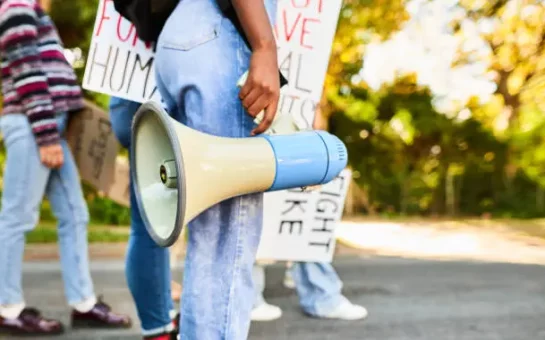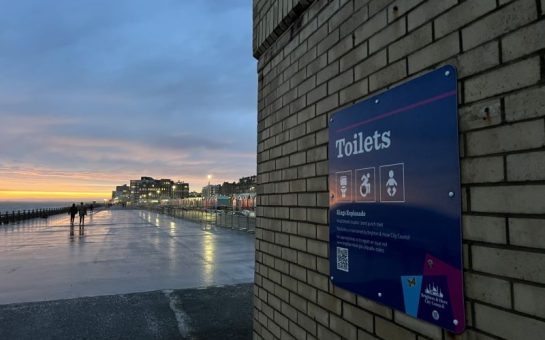The pandemic has created the worst global humanitarian crisis since the Second World War.
Urgent global need for humanitarian assistance has increased, existing crises have been amplified and new ones have been created.
Coronavirus reached the most vulnerable countries already battling the impacts of war, overcrowding conditions where social distancing is almost impossible, inadequate hygiene and other issues.
Organisations have sent overseas workers home so they do not place a burden on local healthcare systems.
In many areas Action Against Hunger are the sole provider of straining medical facilities under the burden of malnutrition.
Alison McNulty, director of operations at Action Against Hunger UK said: “The impact of Covid-19 has been devastating in the UK, but can you imagine dealing with Covid-19 in a warzone, or an area ravaged by prolonged drought?
“Covid-19 has created the worst humanitarian crisis since the Second World War and yet our ability to fundraise has never been more restricted. The British Government is slashing the aid budget at a time when aid agencies are struggling to raise funds.
“This means that despite the worst humanitarian crisis in decades, life-saving programmes are having to close and staff across the sector are losing their jobs.
“We have been able to transition some services, such as counselling for trauma victims in Iraq, to online or over the telephone.”
Action Against Hunger UK established quarantine hospitals in Somalia, and developed the Government’s track and trace programmes in Cameroon.
However challenge events, fun runs and bakes sales to fundraise funds have all stopped due to the pandemic.
Aid agencies are exempt from the measures introduced to support the charity sector.
In Bangladesh, 80% of humanitarian staff were sent home according to the Human Rights Watch.
In March 2020, the United Nations launched a global humanitarian response plan to provide aid to the world’s most vulnerable countries.
The largest source of funding will come from the United States of America who will provide $903.7m, 23.6% of the funding required, according to the UN.
The United Kingdom is the fifth highest contributor, providing $239.9m, 6.3% of the funding.
The plan aims to help the millions of people who rely on humanitarian assistance to survive, supporting the Covid-19 response and other needs.
Globally, 235 million people need humanitarian assistance and protection in 2021, an increase of 40% in a year.
Afghanistan required the most funding at $395.7 and has received $181.4, 45.8% of the amount needed.
Yemen required $385.7 and has received more than this at $386.
Governments across the globe introduced travel restrictions to help fight the pandemic, which stopped humanitarian workers from travelling and responding to those in need.
Fanny Mraz, emergency director at Humanity & Inclusion said: “The measures put in countries of the north and south to reduce the spread of Covid–19 have made it harder to transport humanitarian aid and to mobilise the resources needed to address the crisis.
“Our priority is to continue our emergency activities and to help the most vulnerable people – including people with disabilities, isolated people, single women, refugees and displaced people, who are the main victims of this crisis.”
Humanity & Inclusion have supplied aid to more than 2.2 million people since March 2020.
Charites have implemented the power of being adaptable and launched several projects around the globe.
International group MOAS (Migrant Offshore Aid Station) was the first NGO in Bangladesh to manufacture reusable cloth masks that reduce the spread of the virus in overcrowded camps and villages.
Regina Catrambone co-founder and director of MOAS said: “Covid-19 and all its accompanying restrictions have become yet another adversity on top of the pre-existing humanitarian crisis.
“Throughout 2020, MOAS delivered 50 tonnes of Ready-to-use Therapeutic Food (RUTF) to our partners ADRA Yemen and coordinated a shipment of 70,000 euros’ worth of pharmaceutical aid.”
Featured image credit: Sgt Chris Halton, RLC via Flickr




